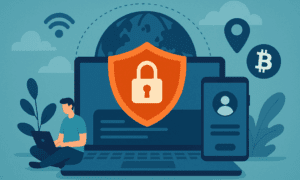Virtual Private Networks (VPNs) have become indispensable tools for individuals and businesses worldwide seeking to enhance online privacy, security, and access. These versatile services operate on a global scale, enabling users to protect their digital footprint, access geo-restricted content, and safeguard their data from various online threats. Here, we will explore how Best VPN Reddit services work everywhere and the mechanisms behind their effectiveness.
1. The Basics of VPN Technology:
At its core, a VPN is a network of servers strategically located in different regions and countries. When a user connects to a VPN server, their internet traffic is encrypted and routed through that server, effectively creating a secure tunnel between their device and the server. This tunnel shields the user’s data from potential eavesdroppers, such as hackers, ISPs (Internet Service Providers), or government agencies.
2. Encryption and Data Protection:
One of the primary functions of a VPN is encryption. VPN services use robust encryption protocols to encode the user’s data, making it unreadable to anyone attempting to intercept it. The encryption process scrambles the data into a format that can only be deciphered by the intended recipient, which is typically a VPN server.
3. Masking IP Addresses:
VPN services also hide a user’s IP address. Instead of websites and online services seeing the user’s actual IP address, they view the IP address of the Best VPN Reddit server. It effectively anonymizes the user’s online activities, making it challenging for websites and advertisers to track their behaviour or determine their real-world location.
4. Preventing ISP Monitoring:
ISPs often monitor their users’ online activities, which can raise privacy concerns. When a user connects to a VPN, their ISP can only see that they are connecting to a VPN server, but not the specific websites or services they access. It prevents ISPs from monitoring and potentially throttling certain types of internet traffic.
5. Public Wi-Fi Security:
VPNs offer a vital layer of protection in such environments. By encrypting the user’s connection, VPNs ensure that their data remains secure, even on unsecured public Wi-Fi networks.
6. Server Location and Speed:
VPN services maintain servers in various locations worldwide. Users can choose which server to connect to based on their needs. For example, if they want a fast connection, they can select a server that is geographically closer to their actual location. This choice optimizes speed and performance.
7. Diverse VPN Protocols:
VPN services use different protocols to establish secure connections, with OpenVPN being one of the most widely used and trusted. These protocols dictate how data is transmitted and encrypted. Users can typically choose the protocol that best suits their needs, balancing security and speed.
8. Continuous Advancements and Innovations:
VPN technology continues to evolve. Providers are improving their services, offering new features, and enhancing encryption standards. This ongoing development ensures that VPN services stay in addressing emerging online threats.
9. Global Network of Servers:
VPN providers maintain a global network of servers in various countries and regions. The diversity of server locations allows users to connect from virtually anywhere in the world, providing access to content and services that may be otherwise restricted in their region.

































